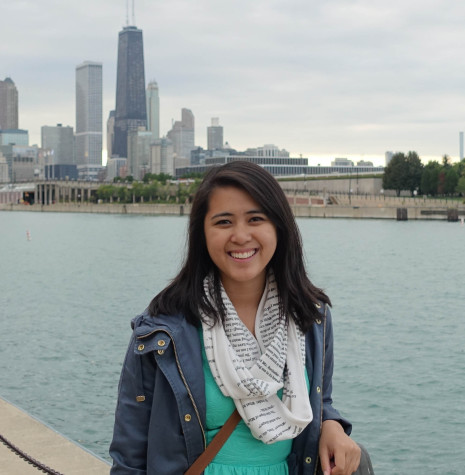CWRU Social Justice Insitute empowers East Cleveland through storytelling project
East Cleveland has a voice, and it is no longer falling on deaf ears.
The Case Western Reserve University Social Justice Institute is working hard to get the residents of East Cleveland to envision what they want their city to become. In 2011, SJI started the Voicing and Action Project (VAP), a series of life narratives of the people of East Cleveland.
VAP does more than tell the stories of East Cleveland and its people: It exists to empower the residents to do the work that will lead to responsible economic development.
Researchers that work with SJI talk to members of the community and ask them to imagine what would happen to their city as a result of the Greater University Circle Initiative (GUCI). The initiative aims to expand East Cleveland through its future relationship with University Circle, developing the city economically and creating new properties and sources of income.
East Clevelanders can attend educational workshops on voting and the community, as well as work on community projects through SJI. Residents are not always given detailed plans on what the future holds for their city, but outside investors often are. SJI wants to fix that.
Dr. Rhonda Williams, founder and director of SJI, hopes to inform GUCI of what the residents want and need. SJI wants to include the community in discussions, instead of GUCI and investors making decisions without consulting the people of East Cleveland.
The researchers conducting interviews with the community are trained once a month. A large portion of the VAP is to build trust and help the researchers and SJI become a part of the community. In 2011, Williams began by developing a mutual trust with the prominent community figures, as well as finding researchers that already lived in the community.
Then, she trained them in oral life narrative collection methodology. Today, her team is a mix of both residents and non-residents of East Cleveland, all made possible by gaining the community’s trust.
“We’re in the stage of our series that is titled ‘Let’s talk about Visioning,’ and it is a documentary that is played one Saturday a month,” says Williams. “Hopefully these interviews will go out to the people who want to develop the community.”
Williams hopes to bring about “a more just society,” and she believes the role of the youth and the next generation is critical. To her, this generation includes the social change agents that have the power to make a difference and create new communities.
Ndeda Letson, a resident of East Cleveland, believes that the VAP has helped her realize that everyone has a role to play in the development of the city.
“It’s changed a lot of my thinking. I’ve often looked at the video [of me], and it was an experience. The education continues for me,” says Letson. “The segment of telling my life story and then asking about racial inequalities at the time―beyond acknowledging I’m a woman, I’m black, I live in East Cleveland, my name is ethnic, I didn’t go to Ivy League school and I live on my property—I was cognizant of those, but it didn’t directly occur to me that some of the challenges that we’ve all been confronted with are because of the systems and rules in place that have continued to perpetuate certain injustices.”
To Letson, the community is transforming because of SJI, and she truly believes that the project has become empowering for the residents. She is grateful for VAP and the opportunity it has provided for residents to share their stories and develop a different narrative for how others perceive East Cleveland. The interviews provide a chance for others to see all the different aspects of the community.
“I think that the project itself has provided a vehicle for mobilizing us,” says Letson. “But it’s us who are doing the mobilizing.”
VAP’s ultimate goal is to have a sustained and ongoing impact on East Cleveland.
“It’s exciting to work with people who want to see transformation in their community, who want to see positive change,” says Williams. “These people are invested and have pride in themselves and their community, they want to develop East Cleveland and have a vision for the future.”

Jeniece Montellano is the social media editor for The Observer and occasionally covers stories for the news and arts and entertainment sections. She has...

